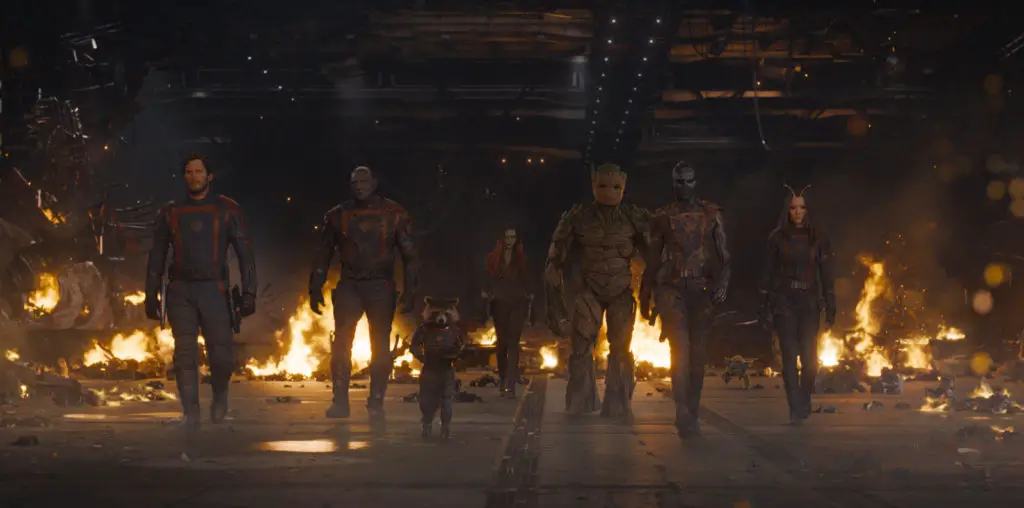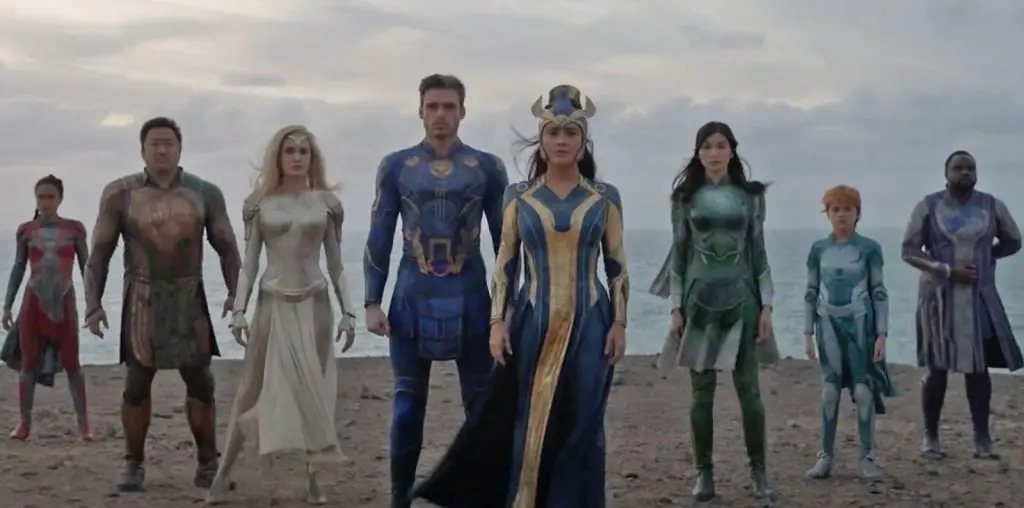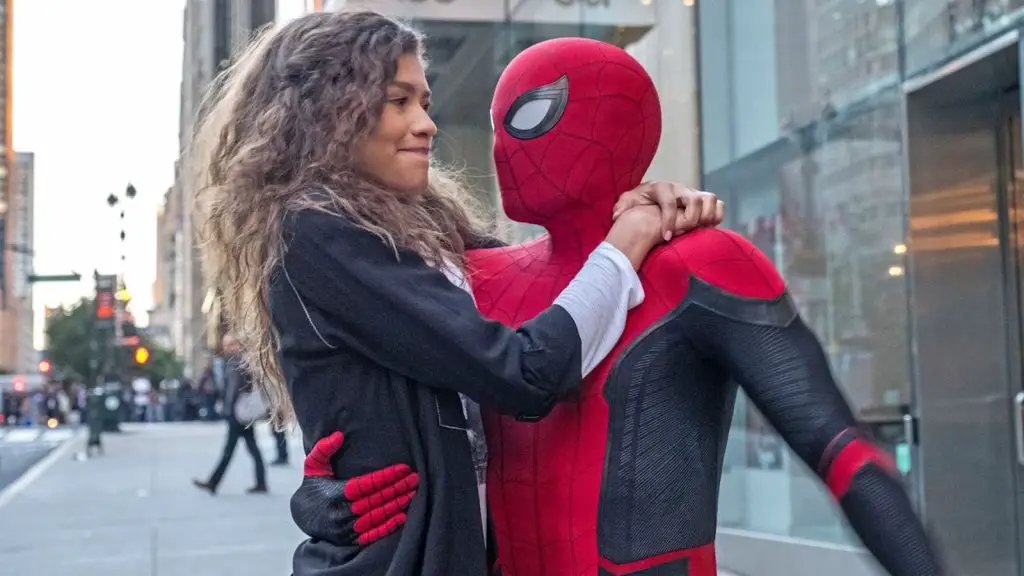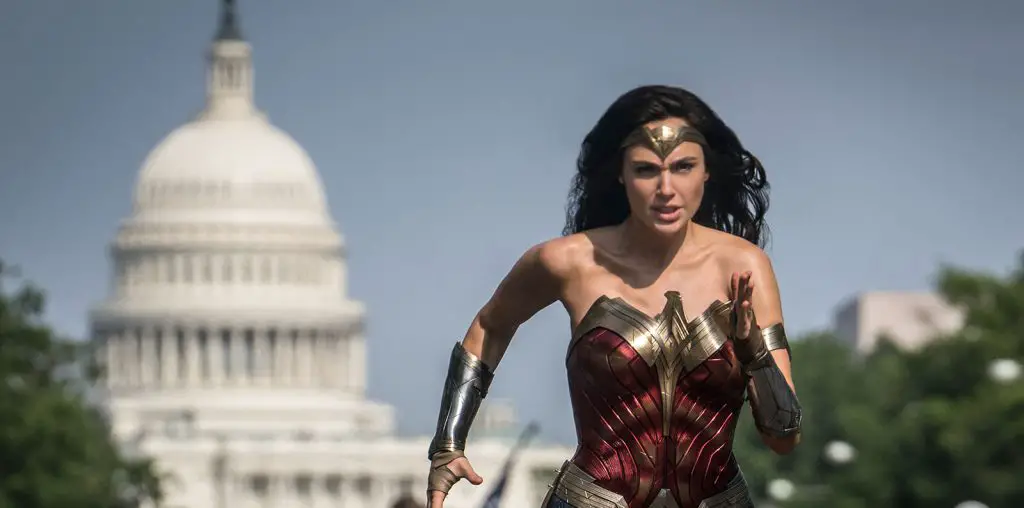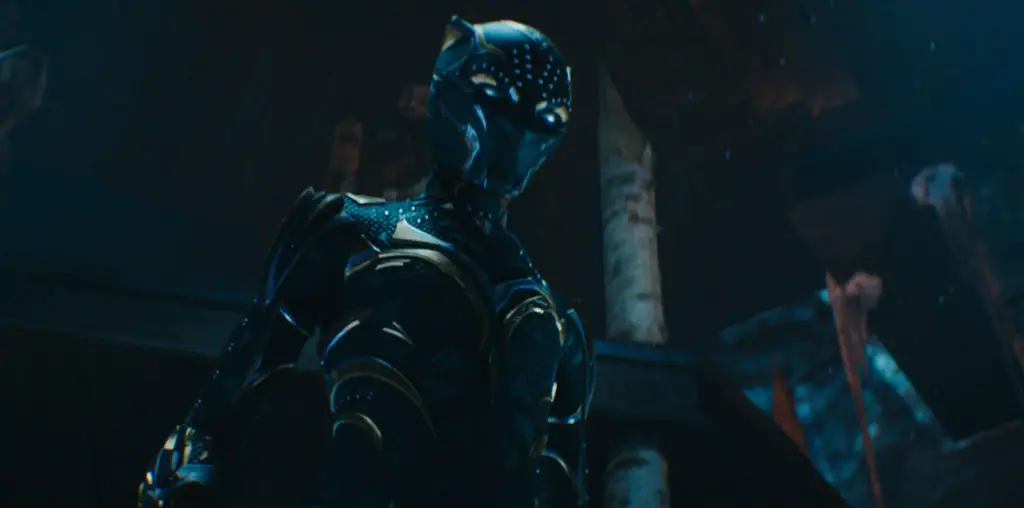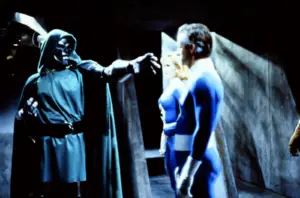
Why Marvel’s Fantastic Four Film Franchise Has Never Succeeded and How to Fix It – By Joseph Culp, the first live action Doctor Doom
An Open Letter to Marvel Studios
Dear Marvel Studios,
The reason why the last three film versions of Marvel’s The Fantastic Four have never been as successful as hoped is because the first 1994 film version has never been officially released or acknowledged. After thirty years the now historic and glaring omission in the film canon remains a blind spot and has become a blockage in the energetic system of Marvel’s film franchise lineage. The blind spot has far-reaching deleterious effects.
The 1994 film “The Fantastic Four” which was produced by Roger Corman for Constantin Films and which was infamously held back from its release is now one of the biggest cult films of all time. The film was shelved and rumored to have been “destroyed”, yet for over thirty years the fan base grew into the millions – as underground bootlegs proliferated for decades and were distributed from one generation to the next – bringing the banished work ever closer to a thing of legend by countless fans of Marvel genre as well as numerous critics and journalists.
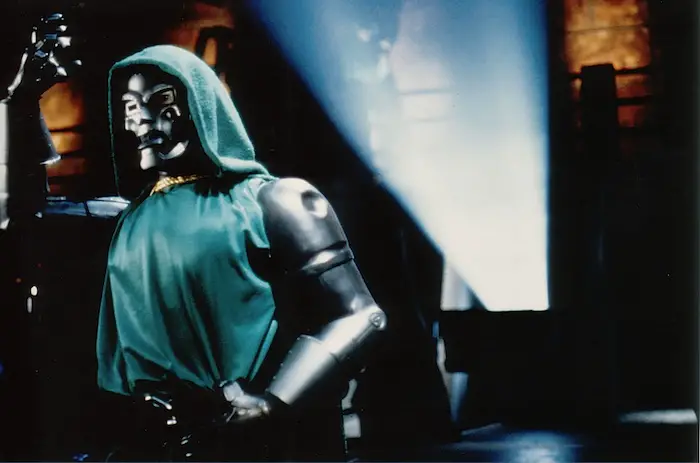
FANTASTIC FOUR ’94 IS BETTER THAN MOST
The Fantastic Four ‘94’s loyal fans have roundly agreed that though the film was produced “on a shoestring” and had minimal special effects, it represents the “favorite” version to date. Though never officially released, the film is often panned for its low-budget style and special effects, yet is widely praised for capturing the spirit, humor, and pathos of the original comic – something that subsequent high-budget versions have never done. Thirty years since the film was completed, the fans continue to agree that it vividly depicts each of the beloved characters – Mr. Fantastic, The Invisible Girl, The Human Torch, The Thing and arch villain Doctor Doom – with emotional resonance and in the classic style of creators Stan Lee and Jack Kirby. This is clearly a testament to the film’s writer, director, and actors who had to rely on story and characterization rather than special effects.
The story goes that the first film of F4 was supposedly made only to extend producer Bernd Eichinger’s rights to the Marvel material in hopes of making a big budget version (which ironically took another 13 years; lore even has it that Eichinger was ultimately dissatisfied, preferring director Oley Sassone’s original). Eichinger had hired producer Roger Corman to help him make the low-budget version and eventually paid Corman to buy back the film, and it was unceremoniously pulled before the intended 1994 release. The film’s disappearance and silencing have been the subject of endless articles, a book “Forsaken”, numerous podcasts, and an excellent documentary, “Doomed: The Story of Roger Corman’s The Fantastic Four” by filmmaker Marty Langford and producer Mark Sikes. Another incisive fan-driven short doc by Xavier Mendoza (@GodzillaMendoza) and his team appeared very recently ,”The Cast that were “Tricked” into making a Fantastic Four Movie”. The cast and crew of the “OG” F4 are interviewed about their rather confounding story year after year. The continued discussion and enormous popularity of the F4 “bootleg” (you can check it out on YouTube) attests to the film’s enduring worth and historic significance. The questions remain: What really happened? Where is the film now? Why not finally release the film and give it a place in Marvel’s film canon? Many now believe that Marvel’s unwillingness to acknowledge this origin film has even had a negative effect on the entire Fantastic Four film franchise.

IS THE FANTASTIC FOUR FRANCHISE “CURSED”?
A SYSTEMIC “CURSE” – The supposition is this: The three officially released film versions of Marvel’s F4 – 2005, 2007, 2015 – have never been entirely successful creatively, commercially or with fans because they bear the burden of a “systemic curse”. This curse is energetic in nature and can be understood through basic systemic “constellation” theory: When one part of a “family system” does not acknowledge a significant ancestor in the system or ignores an impactful experience (traumatic event, hidden abuse, neglect, etc.) there will be an energetic blockage or dysfunction within that system which is connected to it, and this can continue to manifest as a generational, some might even say epigenetic “defect”. This theory fits the case of The Fantastic Four family system. An ancestral film “omission” is now felt by fans as a generational “injustice”. The feeling may be overt or simply unconscious. But the fact remains that it is widely suggested that the filmmakers and the fans were unknowingly complicit in an elaborate “lie” on a fantastic scale.
The origin film, produced by film legend Roger Corman, written by Craig Nevius, and directed by the talented and underappreciated Oley Sassone, has not been given a proper release or exposure – and has never been fully acknowledged by Marvel or any of its co-producing studios or partners. Former Marvel executive Avi Arad even boasted that he bought back the print from Constantin and burned it— hard to believe and heretical if true. The work of the F4 ‘94’s actors and filmmakers has essentially been snubbed and denied recognition – and ultimately, logically, the “snub” resonates through multiple generations of fans. The original fans from the 90’s (who were eager for its release, thronging to various Comic Cons and then swiftly disappointed) even carry a certain skepticism and ire toward future versions. Why? Because distrust carries from one generation of audience to the next, even unconsciously. Many of the questionable creative choices and decisions in later versions of the Fantastic Four may also stem from this lack of acknowledgment and recognition of their “ancestor” who, ironically, without a real budget or advanced special effects nailed the classic F4 characters and story and “got it right.” Finally, fans tend to agree that most efforts to “contemporize” the comic’s original story and characters have mostly fallen flat or been outright rejected – perhaps because of the omission of what they were hoping for – a sincere, heartfelt comic-based version which is exactly what we see in F4 ’94. Ultimately, The Fantastic Four system has a blind spot in its continuum, and the blindness impacts success, both creatively and commercially.
The solution to the blind spot? Light must be shed!
HOW TO LIFT THE F4 CURSE – This problem in the Fantastic Four family system can be changed, reversed, and even transformed into new power for the franchise. Often in cases of systemic blockage people might do an intervention, seek out a shaman or another mystical clearing process to solve this problem. (Doctor Doom might devise something using part magic – part technology) But the power to change a system is in the hands of the descendants; The blind spot can be given light. The blockage can be cleared. There is a remedy to the F4 film legacy problem for creatives, producers, and most importantly, the fans. The ways to do this are:
STEP 1 – OFFICIALLY RELEASE THE FILM
- Release an official STREAMING and BLU-RAY RELEASE of Roger Corman’s 1994 “The Fantastic Four.” This will garner millions of sales and views worldwide by old and new fans alike.
- Acquire and remaster the 35mm negative with state-of-the-art upgrades with added ADR, sound mix, and Special Visual Effects. The CGI animation and VFX technology now exists that can greatly improve the low-budget effects of the original and enhance the experience – something the original filmmakers did not have the resources to do.
- Provide supplemental material with history, interviews and commentary by director Oley Sassone, writer Craig Nevius, producer Roger Corman, and original cast and crew members.
Releasing the film in an official capacity (streaming, Blu-Ray, live screenings) will reverberate in a social media burst of activity that will create a wave of Marvel good will and excitement from past filmmakers, originators, and fans alike. The ensuing discussion and interest will positively influence the new reboot version (scheduled for 2025) and the new audience that wants to embrace it and dive deeper.

STEP 2 – LIFTING THE “CURSE” THROUGH THE MULTIVERSE
Include F4 ’94 in Marvel’s upcoming Fantastic Four film franchise through “creative inclusion”.
Now that Marvel has eagerly embraced the concept of the “Multiverse” and has applied it in films such as “Dr. Strange 2: Madness of the Multiverse” and “Spiderman: No Way Home”, the possibilities for lifting the “F4 Curse” are wide open.
“Spiderman: No Way Home” gave us villains and characters from prior film versions. In “Dr. Strange 2” we glimpsed a multiverse version of F4’s Reed Richards played by John Krasinski. This opens a door for “creative inclusion” of F4 ’94 through references, cameos, clips, easter eggs, and more. Comic and film fans recognize and appreciate these references and are eager to embrace them. The fans “know all” and are eager to see and discuss these references and inclusions. Remember: It is only fandom that drives the success of the MCU.
KEVIN FEIGE now includes all of Marvel’s past works as “canon”.
The MCU mastermind and Marvel head Kevin Feige himself has recently opened the door in his written forward to the book (see article) “Marvel Studios: The Marvel Cinematic Universe – An Official Timeline” by saying “On the Multiverse note, we recognize that there are stories – movies and series – that are canonical to Marvel but were created by different storytellers during different periods of Marvel’s history…as we move forward and dive deeper into the Multiverse Saga, you never know when timelines may just crash or converge (hint,hint / spoiler alert).”
Mr. Feige has always been a visionary in this regard, and one imagines that the significance of the original Fantastic Four ’94 film is not lost on his list of “deeper dives” into Marvel “canon”. He is essentially saying that he is open to utilizing all past content to create a vibrant and holistic “Multiverse Saga” that will reverberate in the space-time-film continuum for Marvel fans and the brand’s legacy.
In a time when Marvel is clearly seeking to find a new foothold and launchpad for the MCU, and with Hollywood recovering from a profound impasse between creative performers and studios, the honorary release of a “hidden” film such as The Fantastic Four ’94 would send a positive message of respect and acknowledgment. (It goes without saying, the film’s creative team never benefited from their labor outside the initial production and never received any compensation for the past thirty years, though the film was bootlegged a million times over and became one of the biggest cult films of all time.) Honoring progenitors by bringing them out of the shadows can have a profound effect.
Ultimately, the next link in the chain of Fantastic Four films needs to be a strong one with no creative or energetic cracks – if it is to relaunch the franchise with a new version for the next chapter in the Marvel Cinematic Universe. Fundamentally lifting the film franchise “curse” by shining a light on a longstanding blind spot and “missing link” in the system will empower the next film for success in untold ways.
Marvel should allow the release of the heretofore silenced 1994 The Fantastic Four and find a creative way to include the first film in the Multiverse of the newest one. If this happens, the publicity, social media, and box office will explode for the benefit of the studio, the progenitors, the fans, and the legacy of one of the very best and enduring comics Marvel ever created.
“Here’s to the future, my friend!” – Doctor Doom, The Fantastic Four
Respectfully,
Joseph Culp
And the Original F4 ’94 Family
Joseph Culp is an actor, writer, and filmmaker. He played the first “Doctor Doom” in The Fantastic Four 1994 and narrated the recent documentary series “Icons Unearthed: Marvel”
Social Media: #releasefantasticfour94
SIGN OUR THE FANTASTIC FOUR PETTION RELEASE PETITION HERE
Further reading links:
Nerdbot: Roger Corman’s “Fantastic Four” is MCU canon now
https://screenrant.com/fantastic-four-reboot-production-curse-history-explained/
First Doctor Doom calls for Fantastic Four Release
https://screenrant.com/fantastic-four-canceled-movie-doctor-doom-release-30-years-later/
Documentaries:
